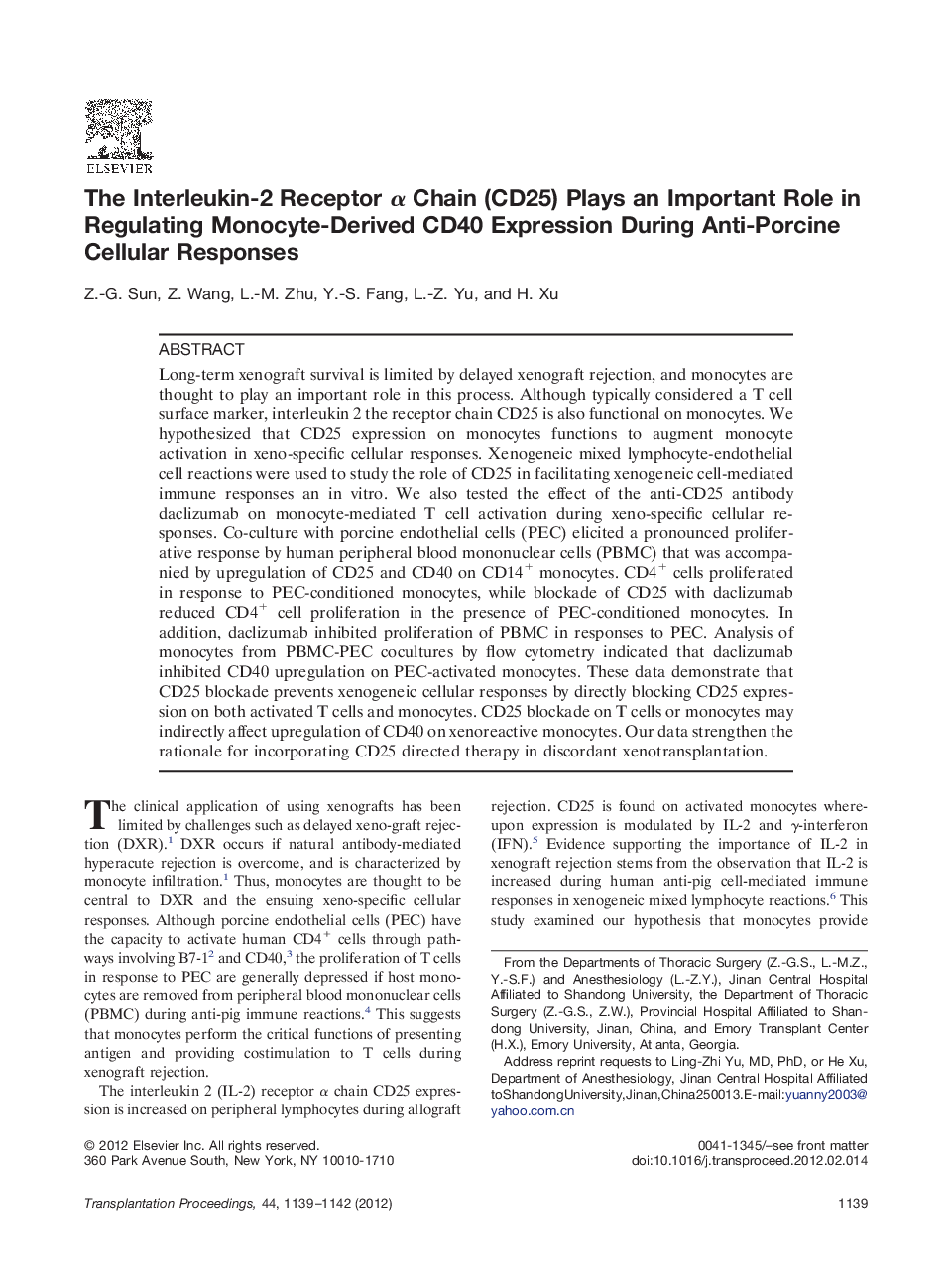| Article ID | Journal | Published Year | Pages | File Type |
|---|---|---|---|---|
| 4256886 | Transplantation Proceedings | 2012 | 4 Pages |
Long-term xenograft survival is limited by delayed xenograft rejection, and monocytes are thought to play an important role in this process. Although typically considered a T cell surface marker, interleukin 2 the receptor chain CD25 is also functional on monocytes. We hypothesized that CD25 expression on monocytes functions to augment monocyte activation in xeno-specific cellular responses. Xenogeneic mixed lymphocyte-endothelial cell reactions were used to study the role of CD25 in facilitating xenogeneic cell-mediated immune responses an in vitro. We also tested the effect of the anti-CD25 antibody daclizumab on monocyte-mediated T cell activation during xeno-specific cellular responses. Co-culture with porcine endothelial cells (PEC) elicited a pronounced proliferative response by human peripheral blood mononuclear cells (PBMC) that was accompanied by upregulation of CD25 and CD40 on CD14+ monocytes. CD4+ cells proliferated in response to PEC-conditioned monocytes, while blockade of CD25 with daclizumab reduced CD4+ cell proliferation in the presence of PEC-conditioned monocytes. In addition, daclizumab inhibited proliferation of PBMC in responses to PEC. Analysis of monocytes from PBMC-PEC cocultures by flow cytometry indicated that daclizumab inhibited CD40 upregulation on PEC-activated monocytes. These data demonstrate that CD25 blockade prevents xenogeneic cellular responses by directly blocking CD25 expression on both activated T cells and monocytes. CD25 blockade on T cells or monocytes may indirectly affect upregulation of CD40 on xenoreactive monocytes. Our data strengthen the rationale for incorporating CD25 directed therapy in discordant xenotransplantation.
